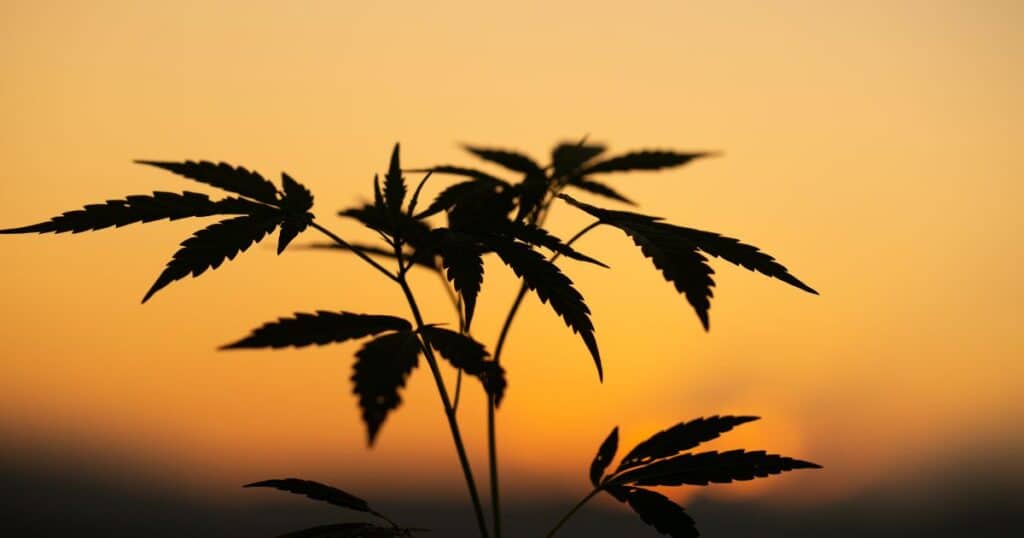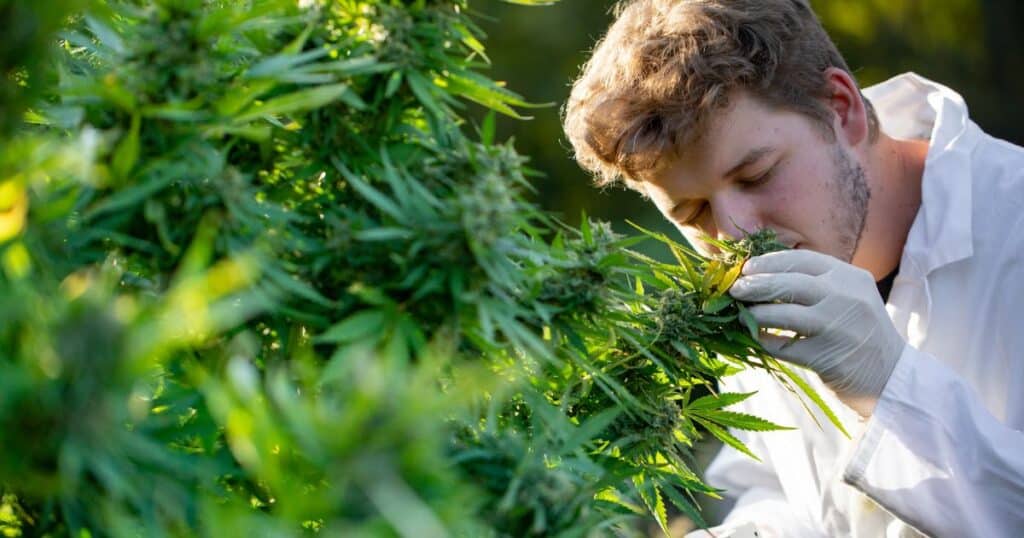The emergence of the COVID-19 pandemic in 2020 has profoundly impacted the world, with many countries struggling to contain the spread of the virus and find effective treatments. However, a recent study has shed light on potential benefits for one group of individuals during this global crisis – marijuana users.
According to a study published in CHEST Journal, researchers found that individuals who use marijuana and contracted COVID-19 fared better in terms of mortality and complications compared to non-users. This study has sparked both interest and controversy, as marijuana still remains a controversial topic in the United States due to its Schedule I classification.
Schedule I Classification
The United States has a long history of marijuana laws, starting with the Marihuana Tax Act of 1937, which effectively criminalized the possession and sale of cannabis. This was followed by the Controlled Substances Act of 1970, which placed marijuana in Schedule I – the most restrictive category reserved for drugs with no accepted medical use and high potential for abuse.

This classification has greatly hindered research opportunities for cannabis, as it imposes strict regulations and barriers on scientists and institutions looking to study the potential benefits of marijuana. As a result, there is limited knowledge of this plant’s actual effects and uses.
Results of Study
The purpose of the study states, “Marijuana use is becoming increasingly prevalent worldwide, yet the full spectrum of its effects largely remains unknown. Although cannabinoids have immunomodulatory properties, there remains a significant gap in our understanding of the potential impact of marijuana use on COVID-19 outcomes. The purpose of the study is to compare the outcomes of COVID19 infection on individuals who use marijuana and those who do not.”
The study included 322,214 patients who tested positive for Covid-19, out of which 2,603 were marijuana users. Researchers used univariate analysis to compare outcomes between marijuana users and non-users before and after matching the groups. After matching, they found that marijuana users had significantly lower rates of intubation, acute respiratory distress syndrome (ARDS), acute respiratory failure, severe sepsis with multiorgan failure, and mortality.
“On univariate analysis, marijuana users had significantly lower rates of intubation (6.8% vs 12%), acute respiratory distress syndrome (ARDS) (2.1% vs 6%), acute respiratory failure (25% vs 52.9%) and severe sepsis with multiorgan failure (5.8% vs 12%). They also had lower in-hospital cardiac arrest (1.2% vs 2.7%) and mortality (2.9% vs 13.5%).”
The conclusion states that “Marijuana smokers had better outcomes and mortality compared to non-users. The beneficial effect of marijuana use may be attributed to its potential to inhibit viral entry into cells and prevent the release of proinflammatory cytokines, thus mitigating cytokine release syndrome.”
The results suggest that marijuana use may have had a protective effect against the severity of COVID-19 in this group of patients. However, it is important to note that this study only shows an association and not causation. Further research is needed to confirm these findings.
Potential Reasons For Better Outcomes for Marijuana Users
Cannabinoids, the active compounds found in marijuana, have been shown to have immunomodulatory properties. This means they can help regulate the immune system and reduce inflammation. In the case of Covid-19, this could potentially prevent the release of proinflammatory cytokines, which can lead to severe complications.
There is also evidence that cannabinoids may have antiviral properties and can inhibit viral entry into cells. This could explain why marijuana users in the study had lower rates of intubation and ARDS – both conditions caused by severe lung inflammation due to COVID-19.
While this study provides fascinating insights into the potential benefits of marijuana in relation to COVID-19, it also highlights the need for further research in this area. Understanding the mechanisms behind these findings and whether they can be replicated in larger, more diverse populations is important.
If confirmed, the results of this study could have significant implications for healthcare. Cannabis could potentially be used as a preventive measure or treatment for Covid-19, especially in high-risk individuals. This also opens up opportunities for developing new drugs and therapies based on the compounds found in cannabis.

Overall, the recent study comparing COVID-19 outcomes between marijuana users and non-users has shown promising results for cannabis as a potential treatment or prevention for the virus. However, due to the restrictive Schedule I classification of marijuana in the US, there is limited knowledge of its true potential as a medicine. This study highlights the need for further research and investigation into the immunomodulatory and antiviral properties of cannabinoids, as well as its potential in treating other medical conditions.
As we continue to explore the uses of this plant, it is clear that we are just scratching the surface of what it can do. Let us hope that more research comes to light and sheds light on the true potential of cannabis as a medicine!
Enjoyed that first hit? Come chill with us every week at the Friday Sesh for a freshly packed bowl of the week’s best cannabis news!

















